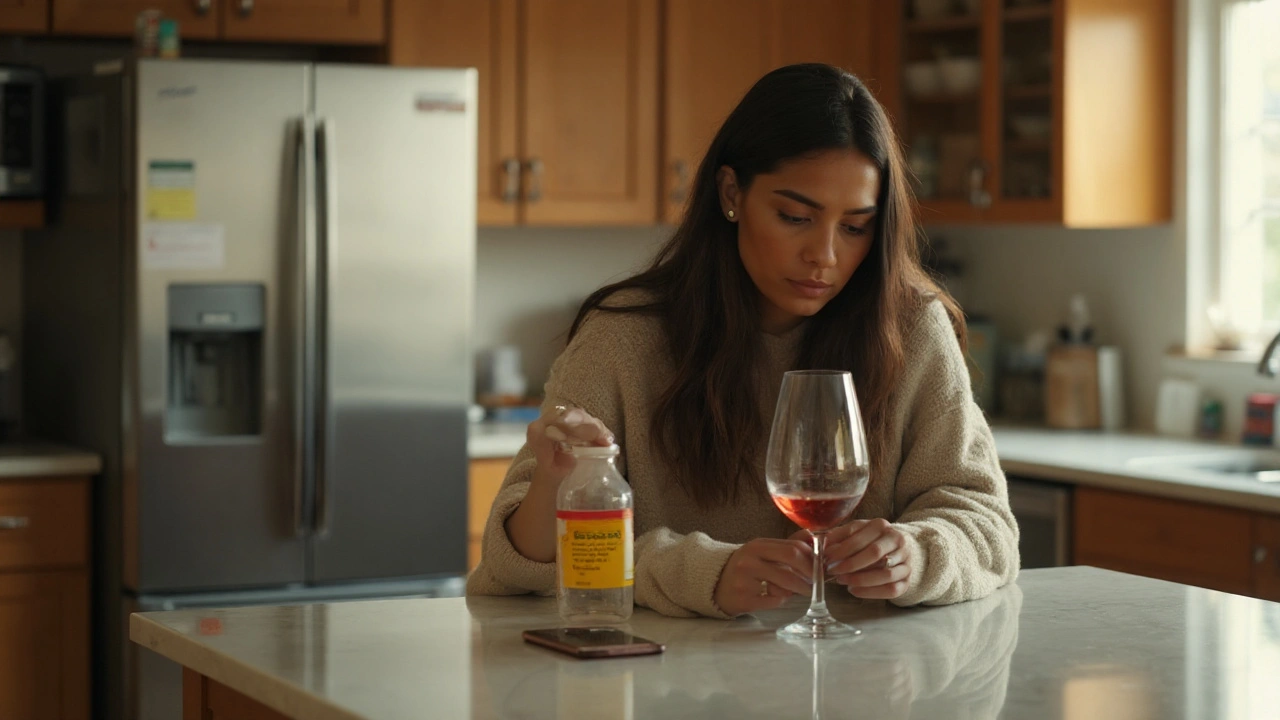Drug Alcohol Interactions: Simple Facts You Shouldn't Miss
Ever wondered what happens when you mix a drink with your prescription or over‑the‑counter pill? The answer can be as quick as a headache or as serious as a dangerous health event. Understanding drug alcohol interactions doesn’t require a medical degree—just a few clear ideas and a little caution.
Why Alcohol Changes How Drugs Work
Alcohol is a depressant that affects the central nervous system. When you take a medication, your liver usually breaks it down so it can work properly. Alcohol competes for the same liver enzymes, slowing down or speeding up the breakdown. That can make the drug too strong, too weak, or cause unexpected side effects.
For example, a common painkiller like ibuprofen relies on liver enzymes to clear out. If you drink a few glasses of wine, those enzymes get busy processing the alcohol, leaving more ibuprofen in your system. The result? Bigger stomach upset or higher risk of bleeding.
Everyday Meds You Might Pair with Alcohol
Antibiotics: Some, like metronidazole, cause a nasty reaction—flushing, nausea, rapid heartbeat—if you drink. Others, like amoxicillin, are less risky but still better without booze.
Antidepressants: Mixing them with alcohol can boost drowsiness, impair judgment, and sometimes worsen depression symptoms. Even “lighter” antidepressants aren’t a free pass for a night out.
Blood thinners (e.g., warfarin): Alcohol can swing blood clotting levels up or down, making bleeding more likely. A single binge could throw your INR out of range.
Sleeping pills and anti‑anxiety meds: Combine two depressants, and you risk severe drowsiness, slowed breathing, or even unconsciousness. It’s a classic “don’t mix” scenario.
Over‑the‑counter pain relievers (acetaminophen, ibuprofen): Alcohol already stresses the liver; adding acetaminophen can cause liver damage faster. Ibuprofen plus alcohol raises stomach ulcer risk.
These are just a few common cases. The safe rule of thumb: if a medication label says “no alcohol” or “avoid alcohol,” take it seriously.
If you’re not sure, check the prescription leaflet, ask your pharmacist, or give your doctor a quick call. A short conversation can save you from an avoidable mishap.
Remember, timing matters too. Even if a drug says occasional alcohol is okay, waiting a few hours after a dose can reduce the interaction risk. For long‑term meds, many doctors recommend keeping alcohol intake low or zero.
Bottom line: mixing drinks with meds isn’t a gamble you want to take. Knowing which combos are risky helps you stay in control, enjoy social moments safely, and keep your health on track.
Medications and Alcohol: Safe Mixes, Dangerous Combos, and What to Do (2025 Guide)
Can you drink on your meds? Clear, evidence-backed rules, risk-by-drug tables, and step-by-steps so you know what’s safe, what’s not, and how to handle slip-ups.
Keanu Rutherford | Sep, 10 2025 Read More
